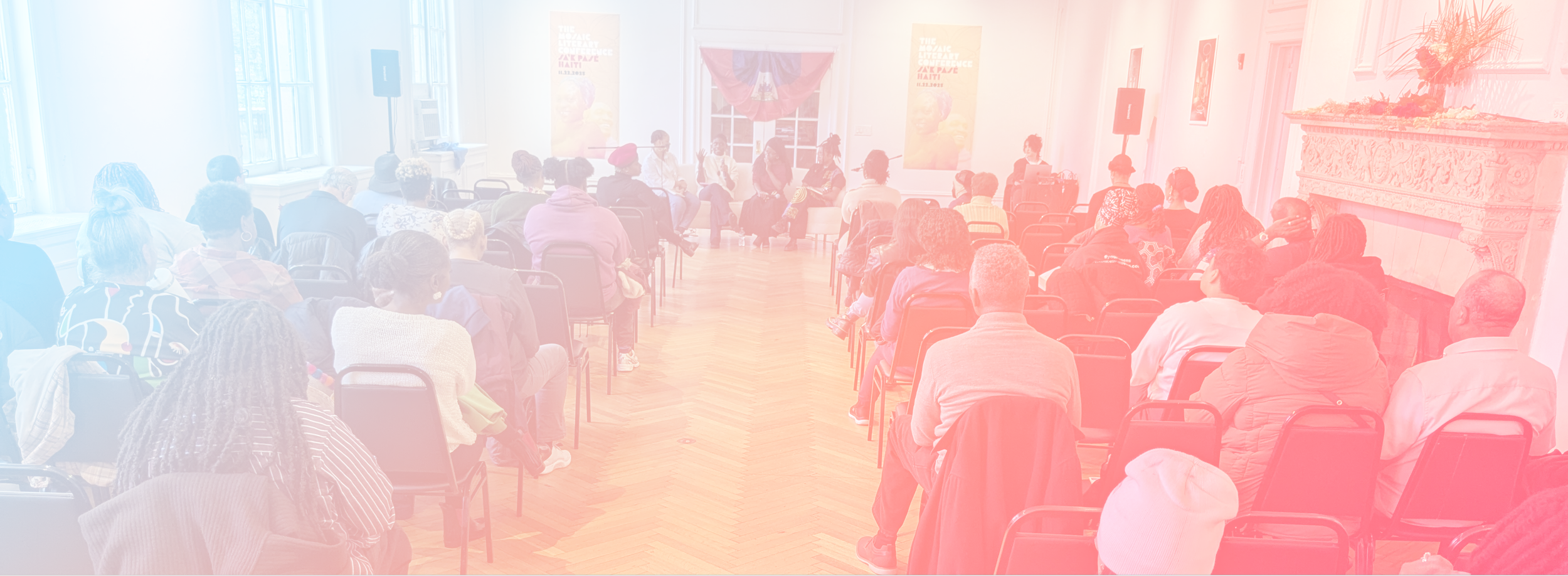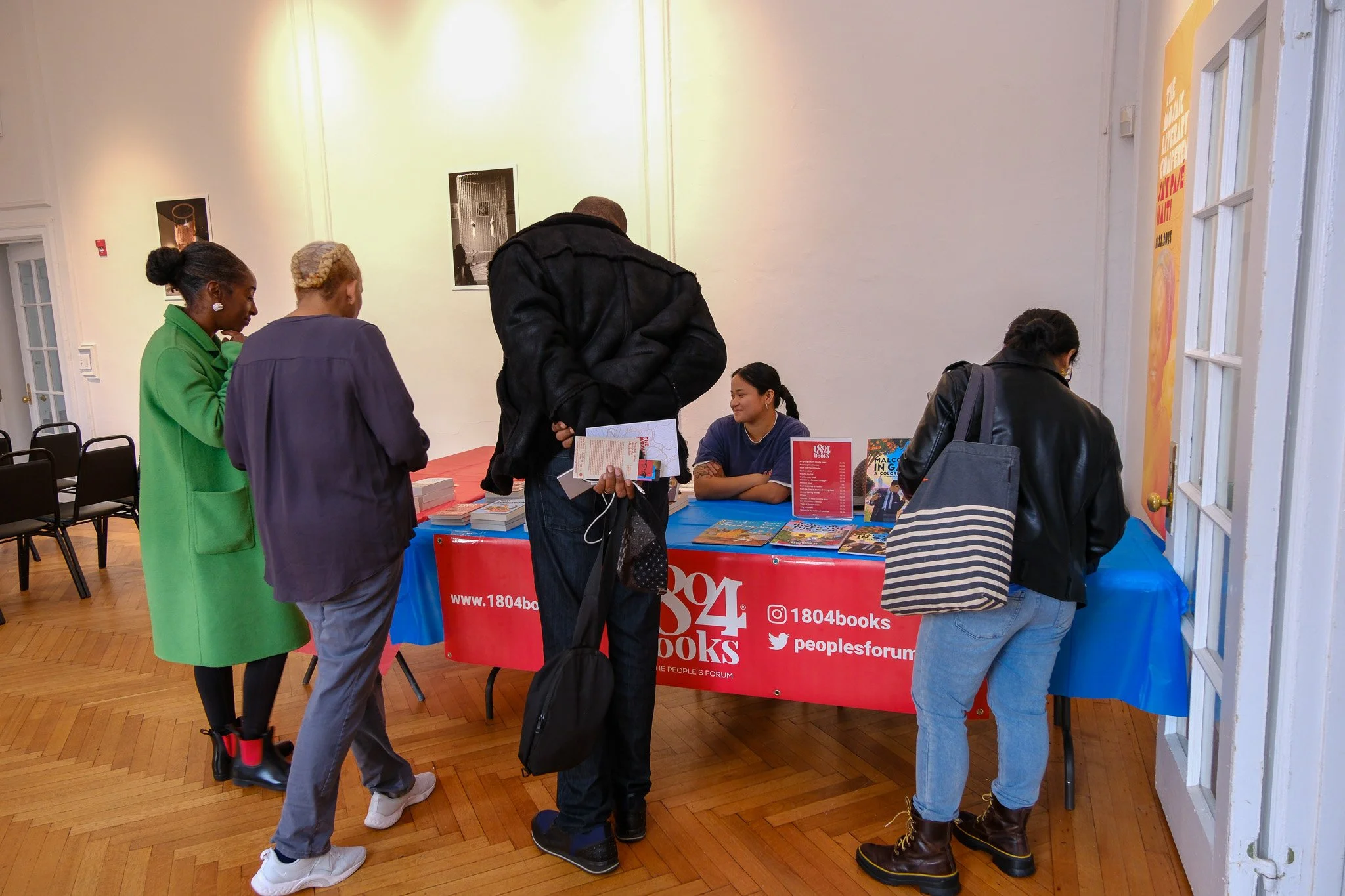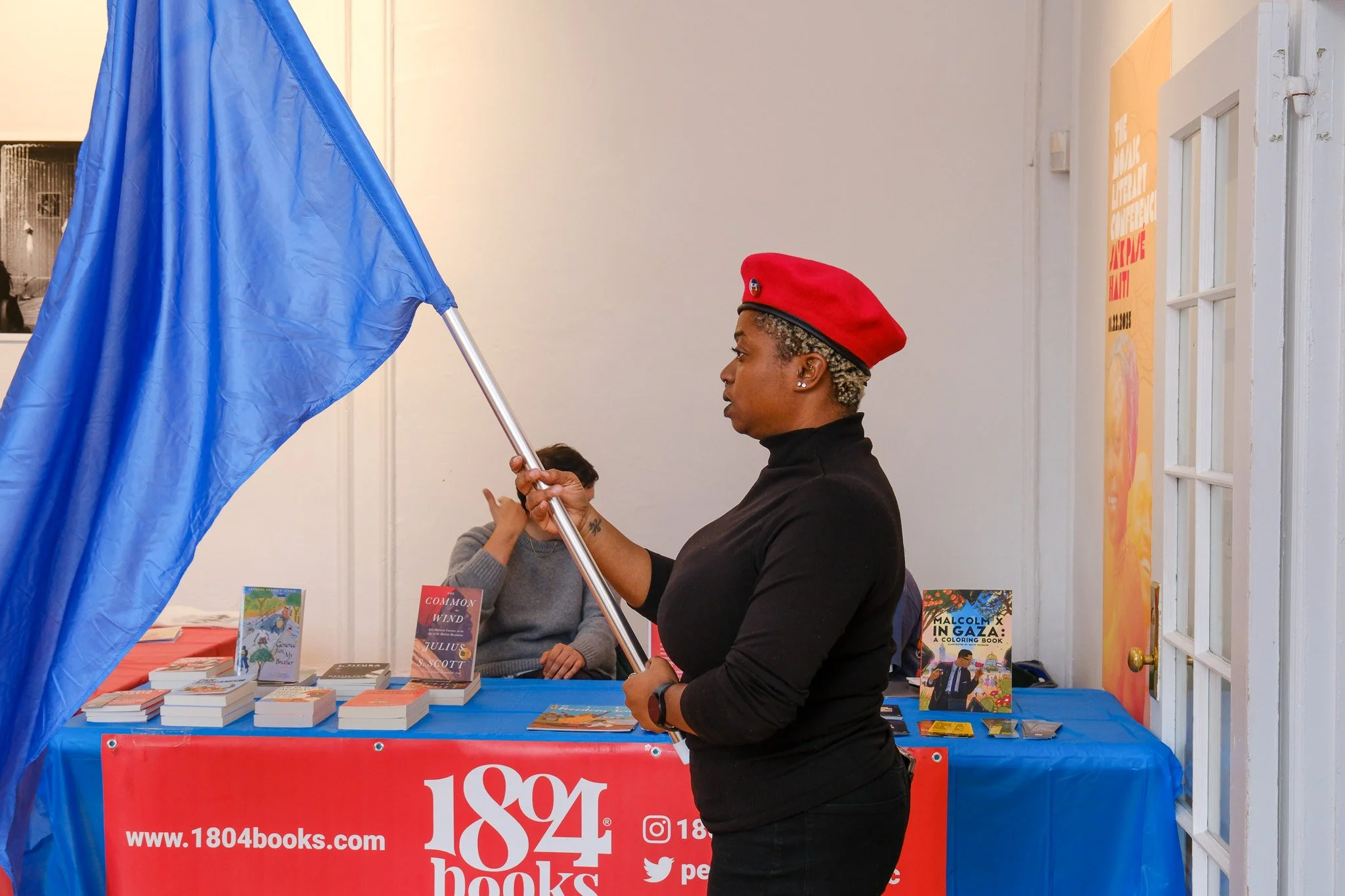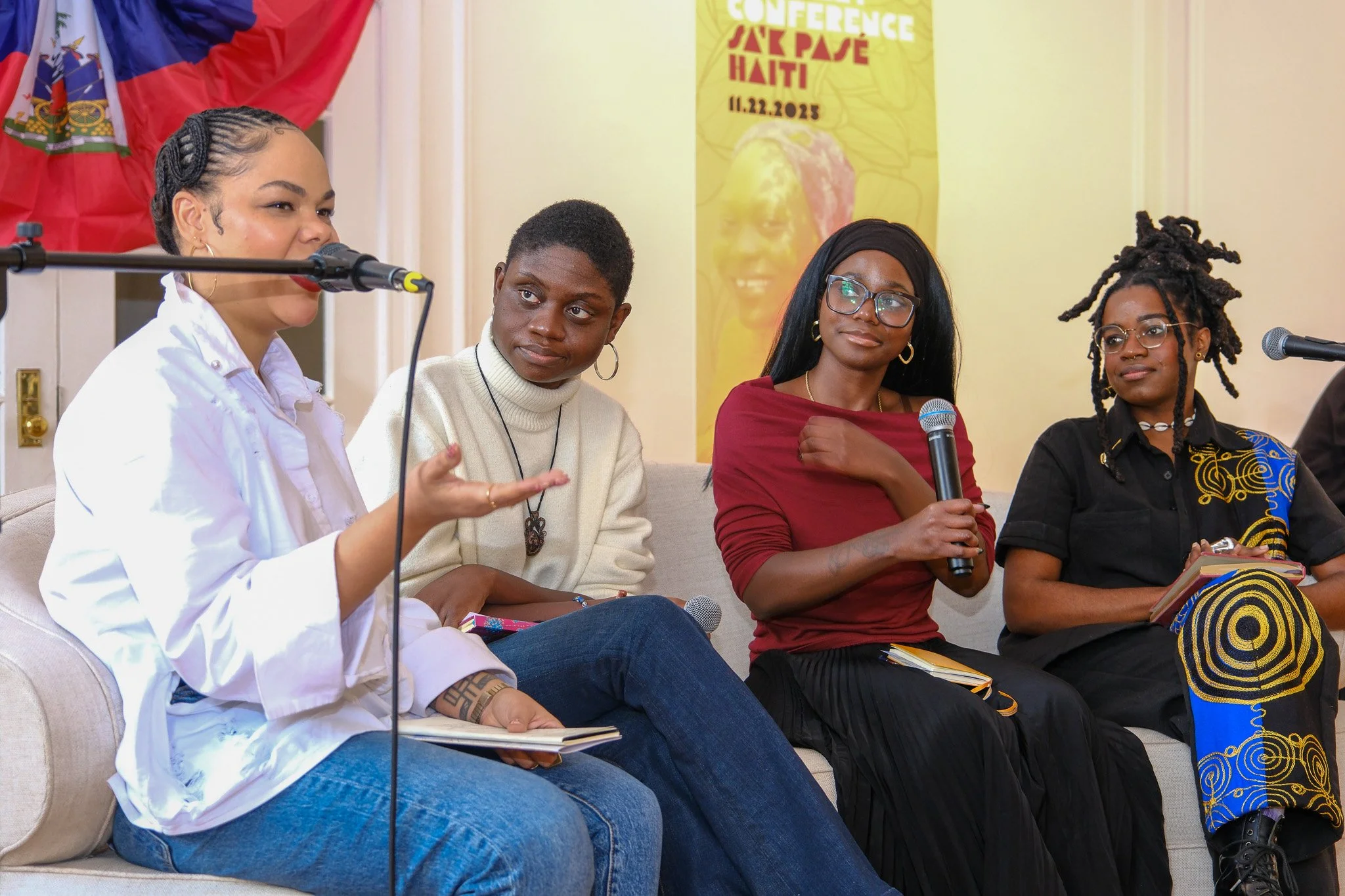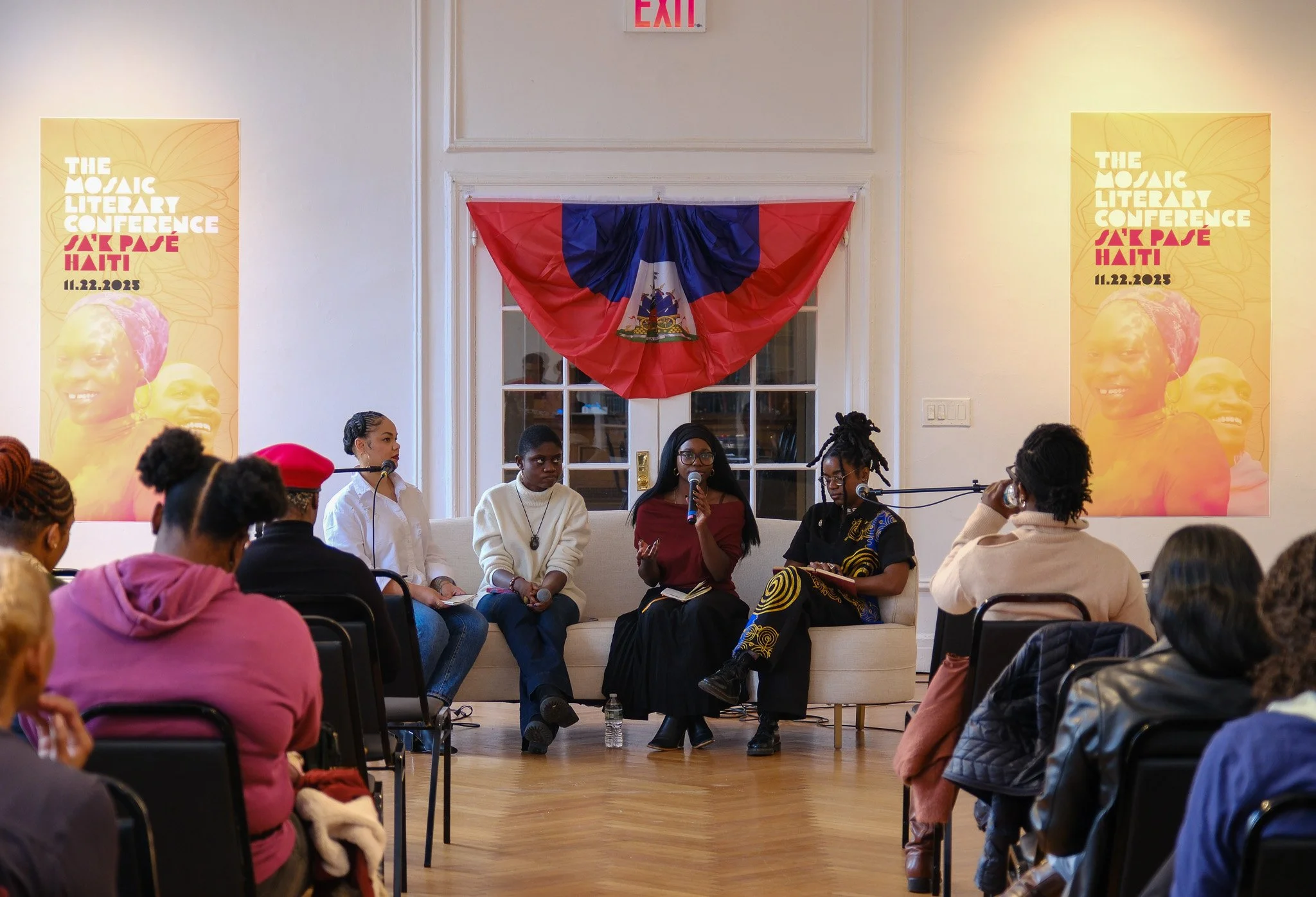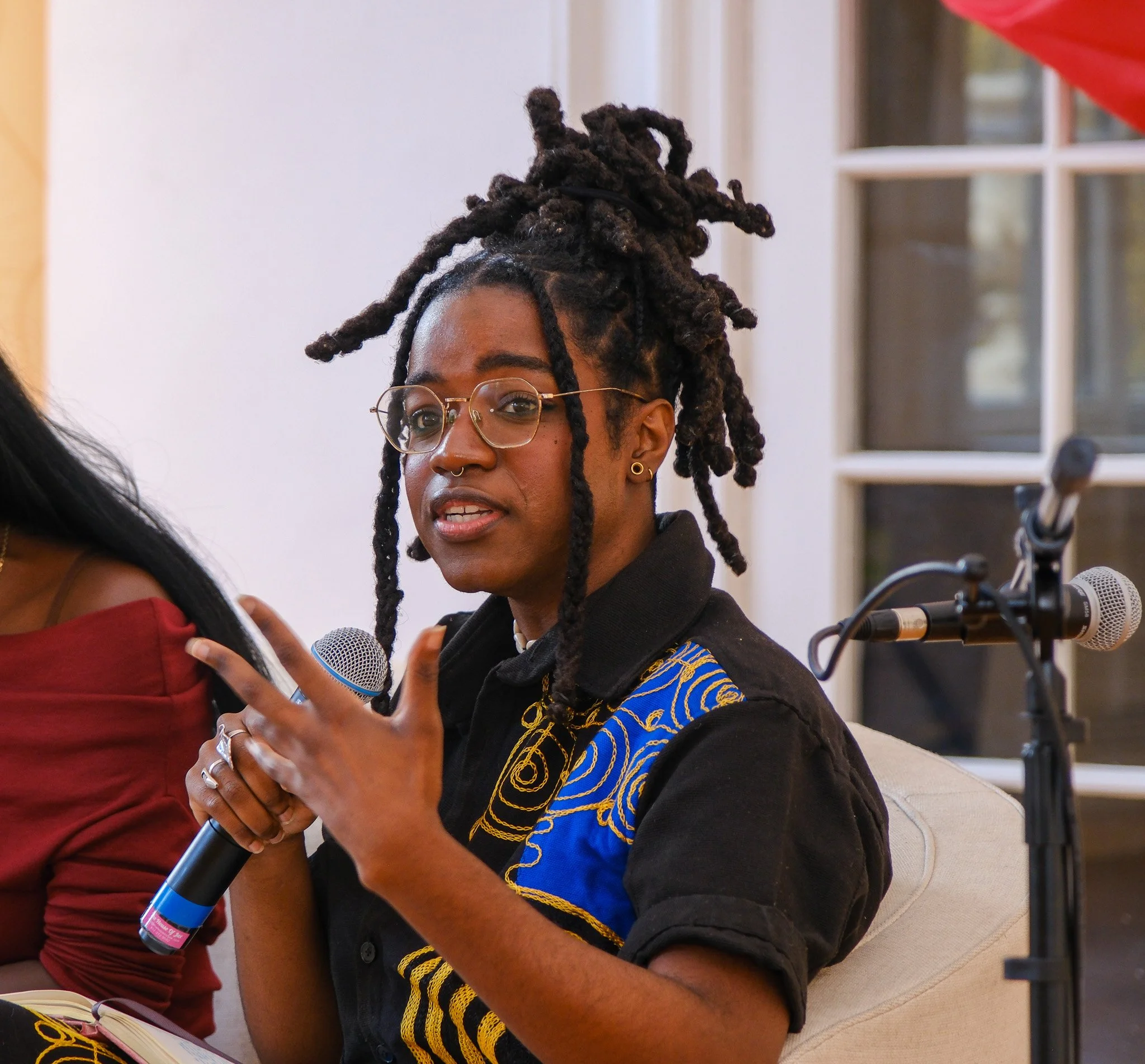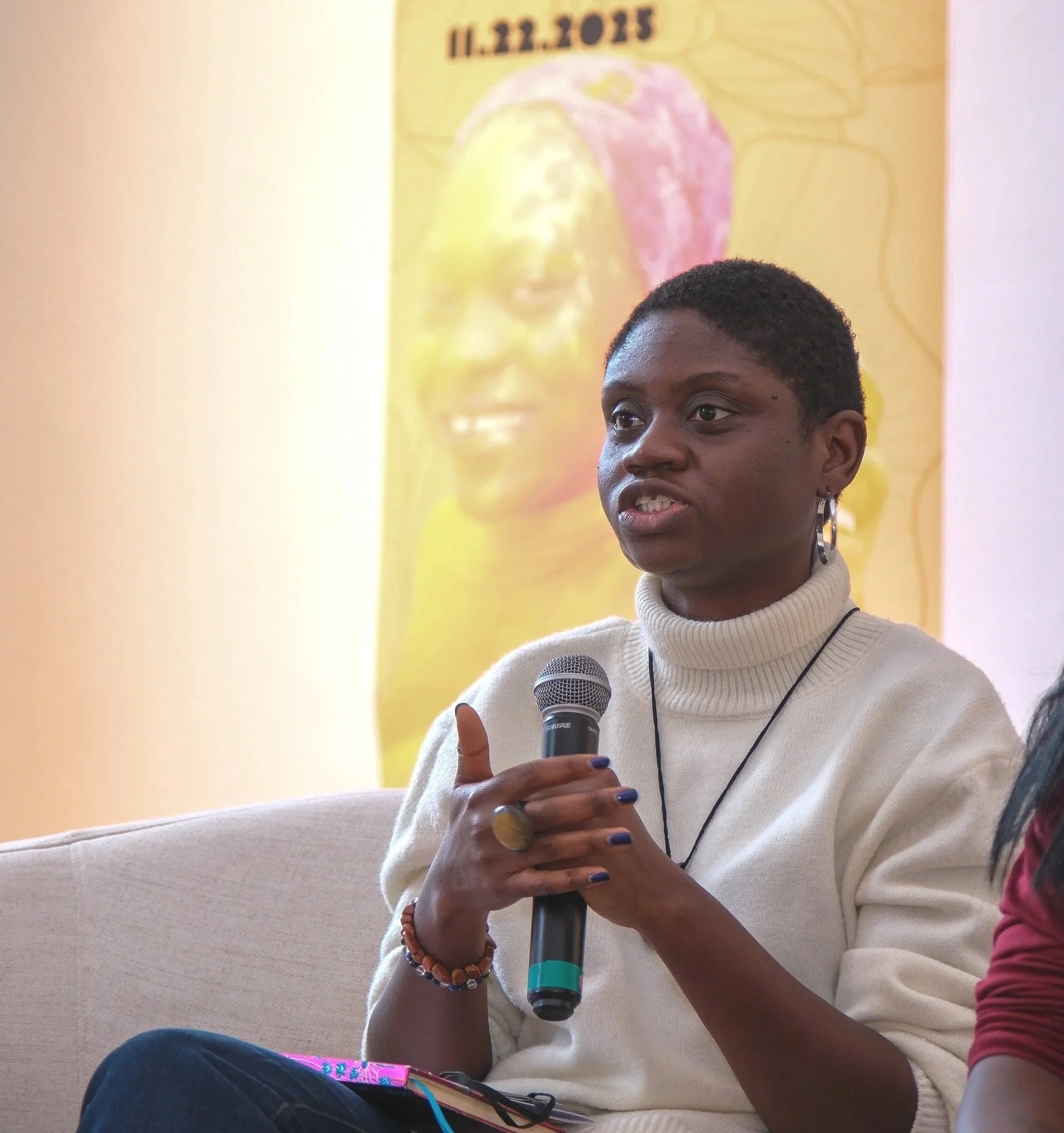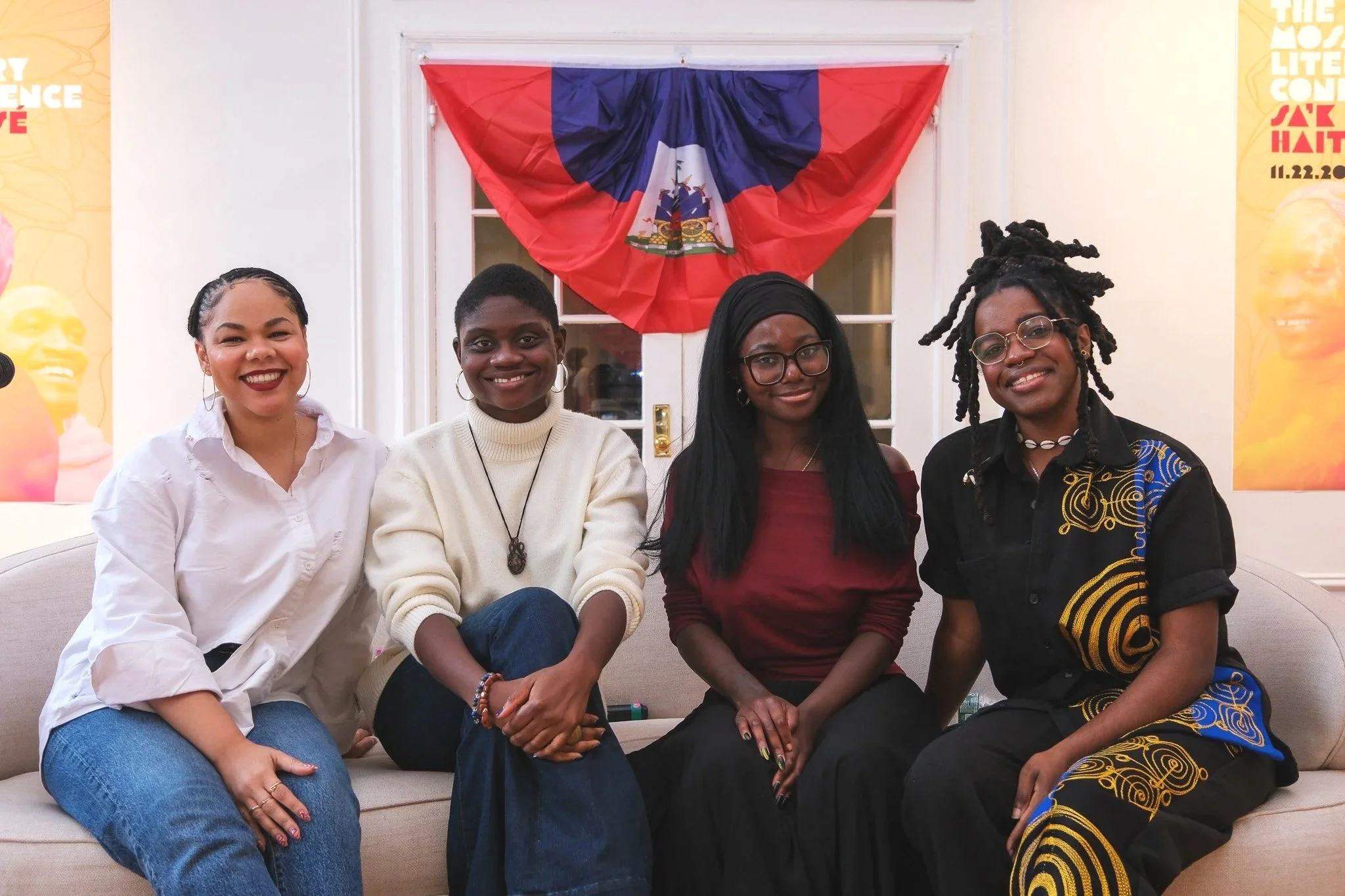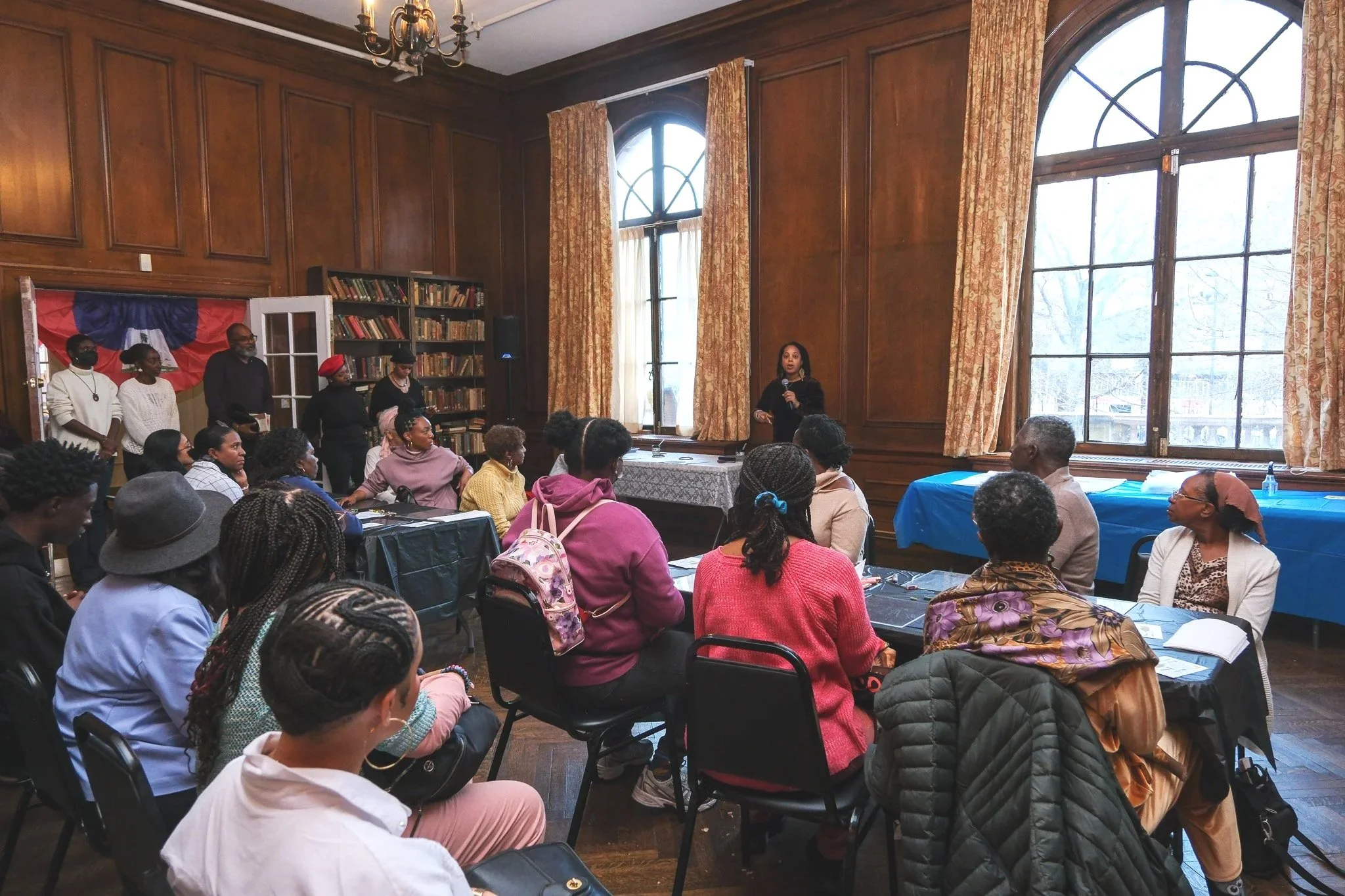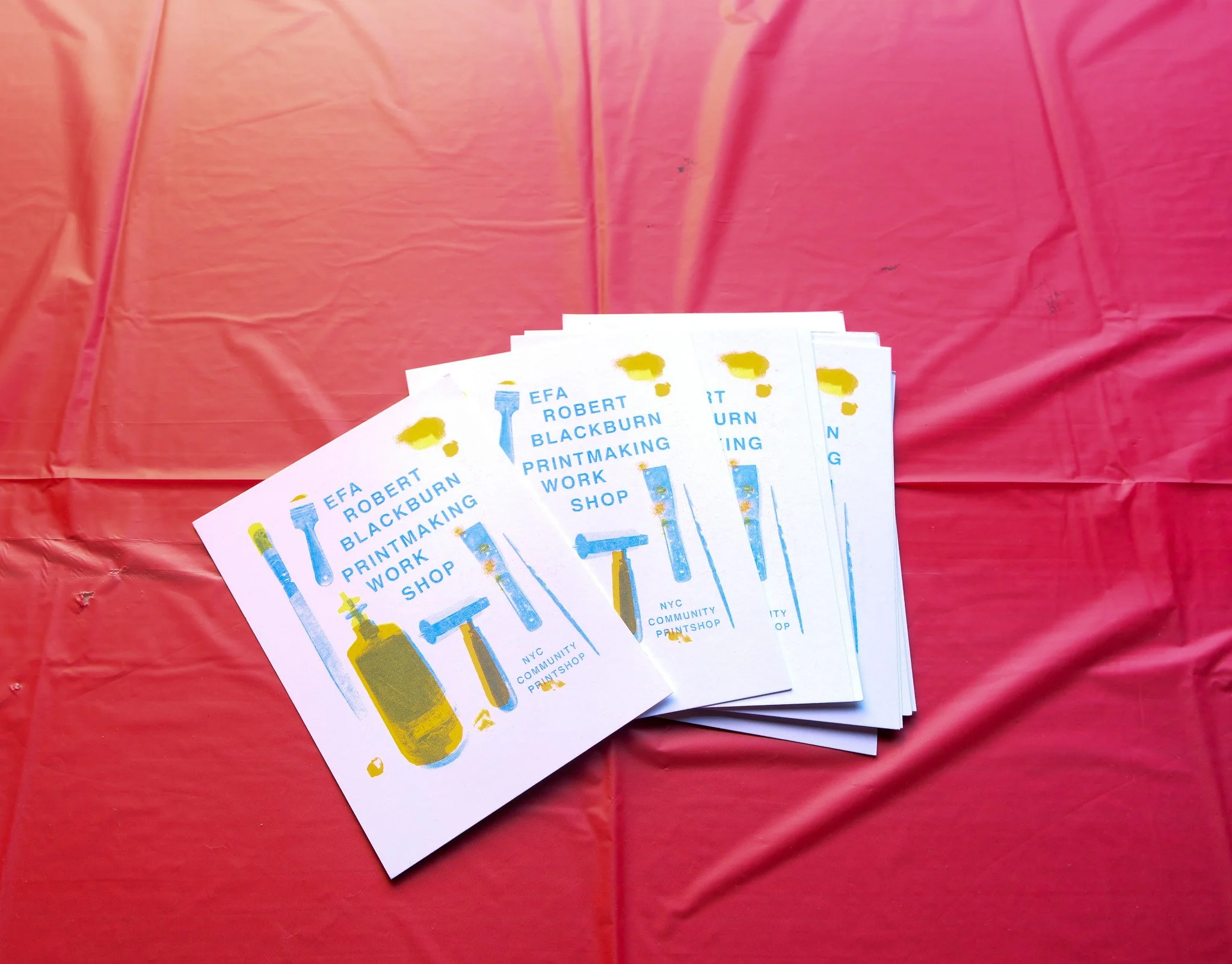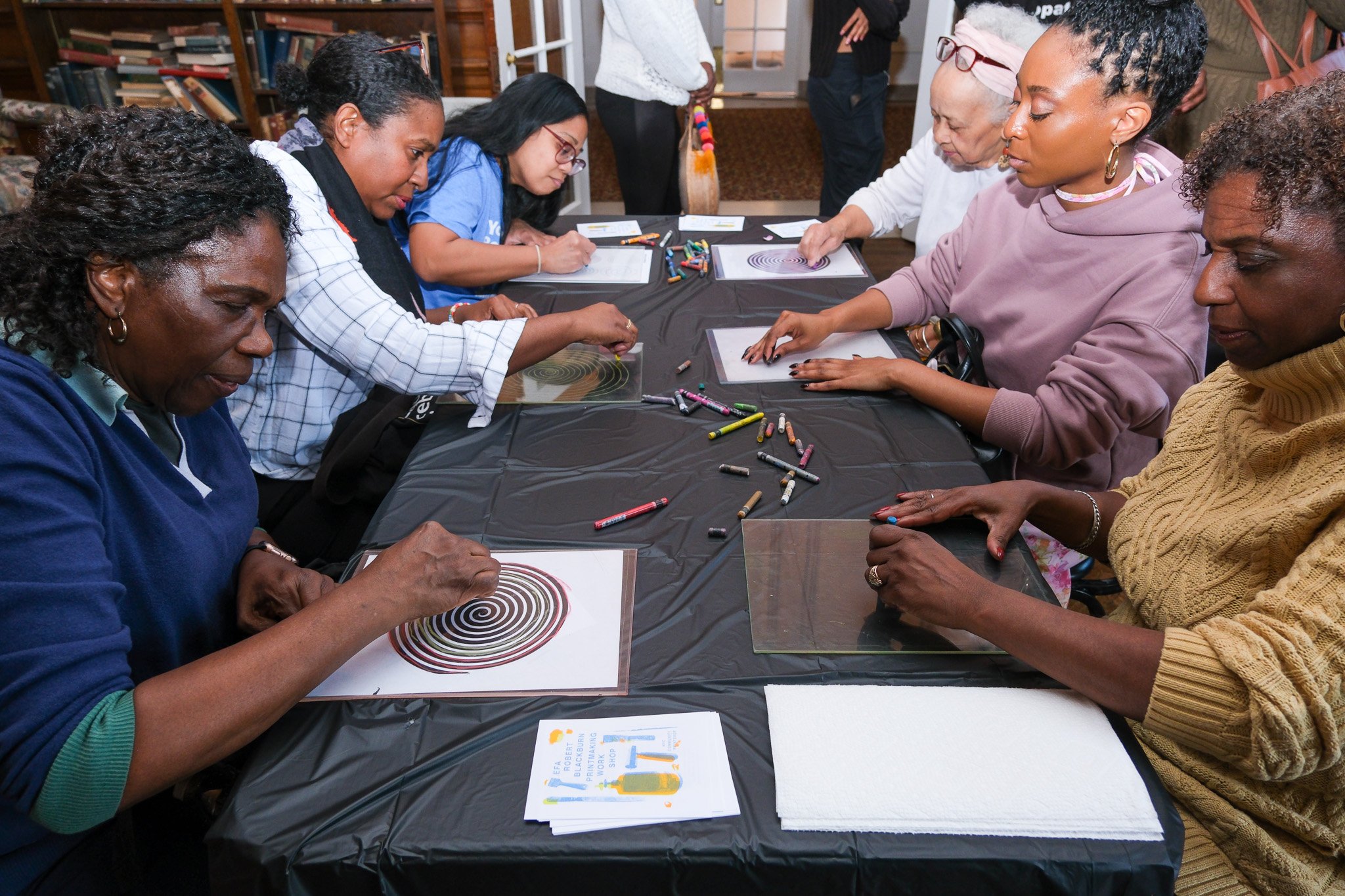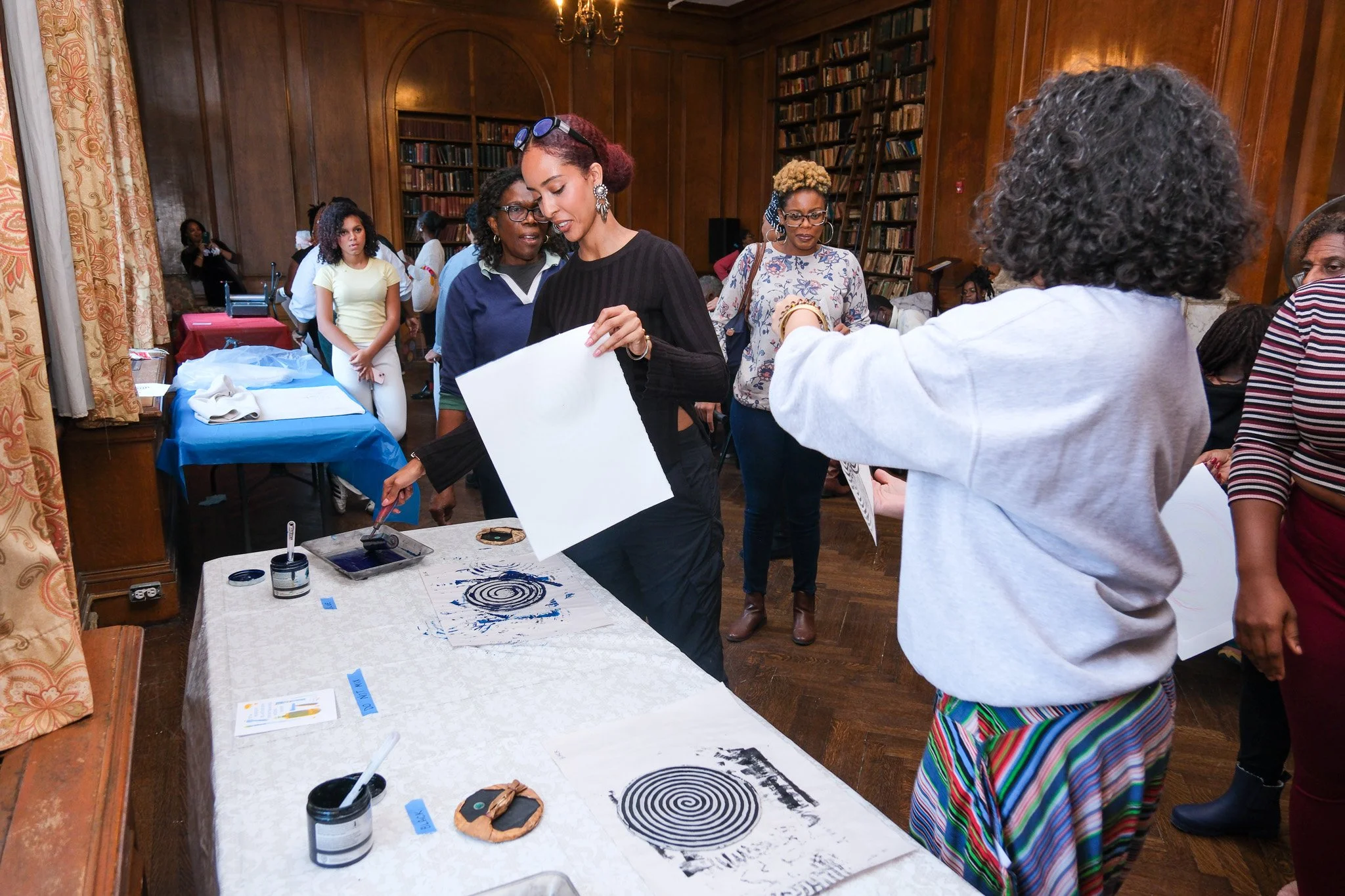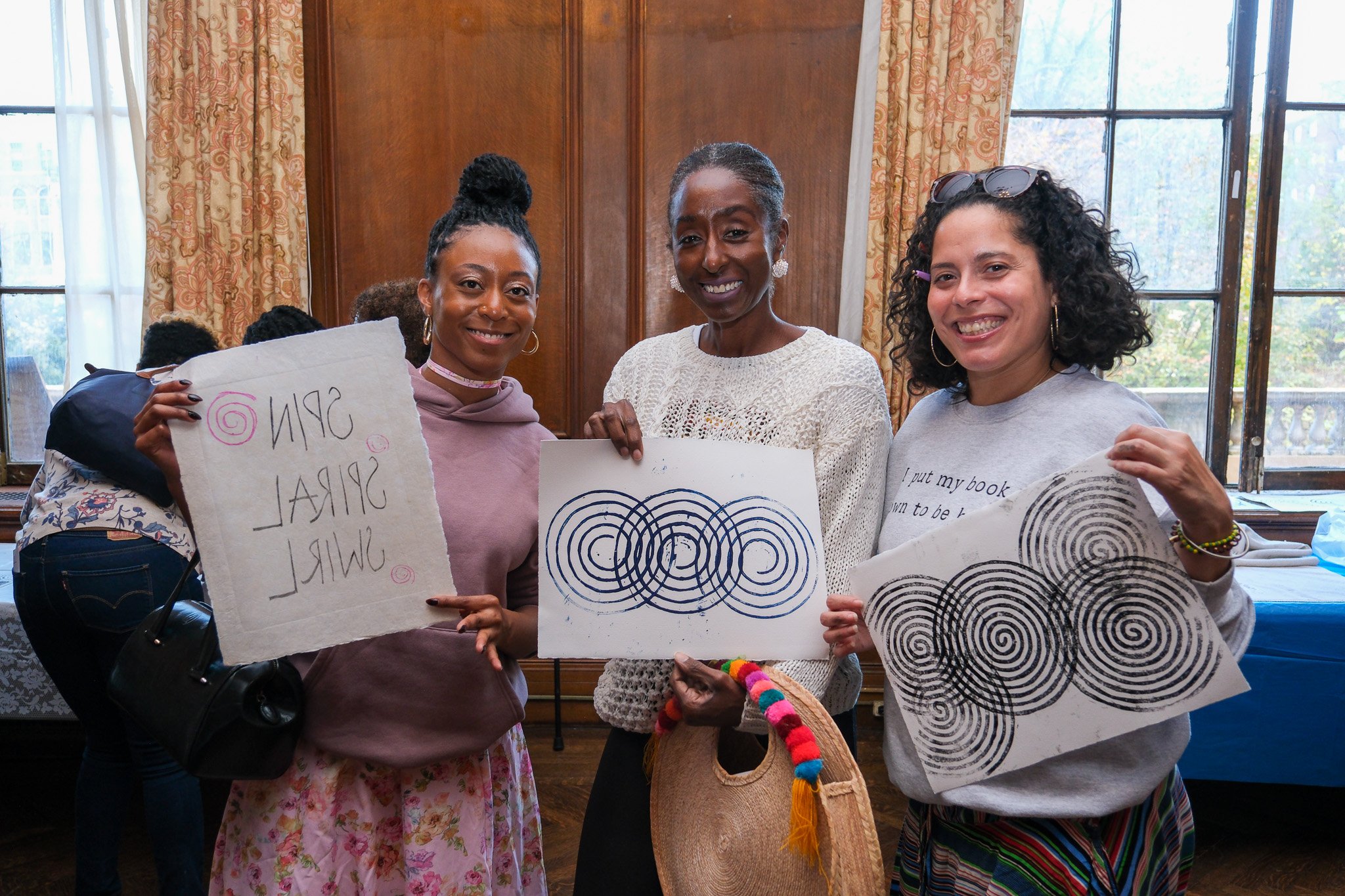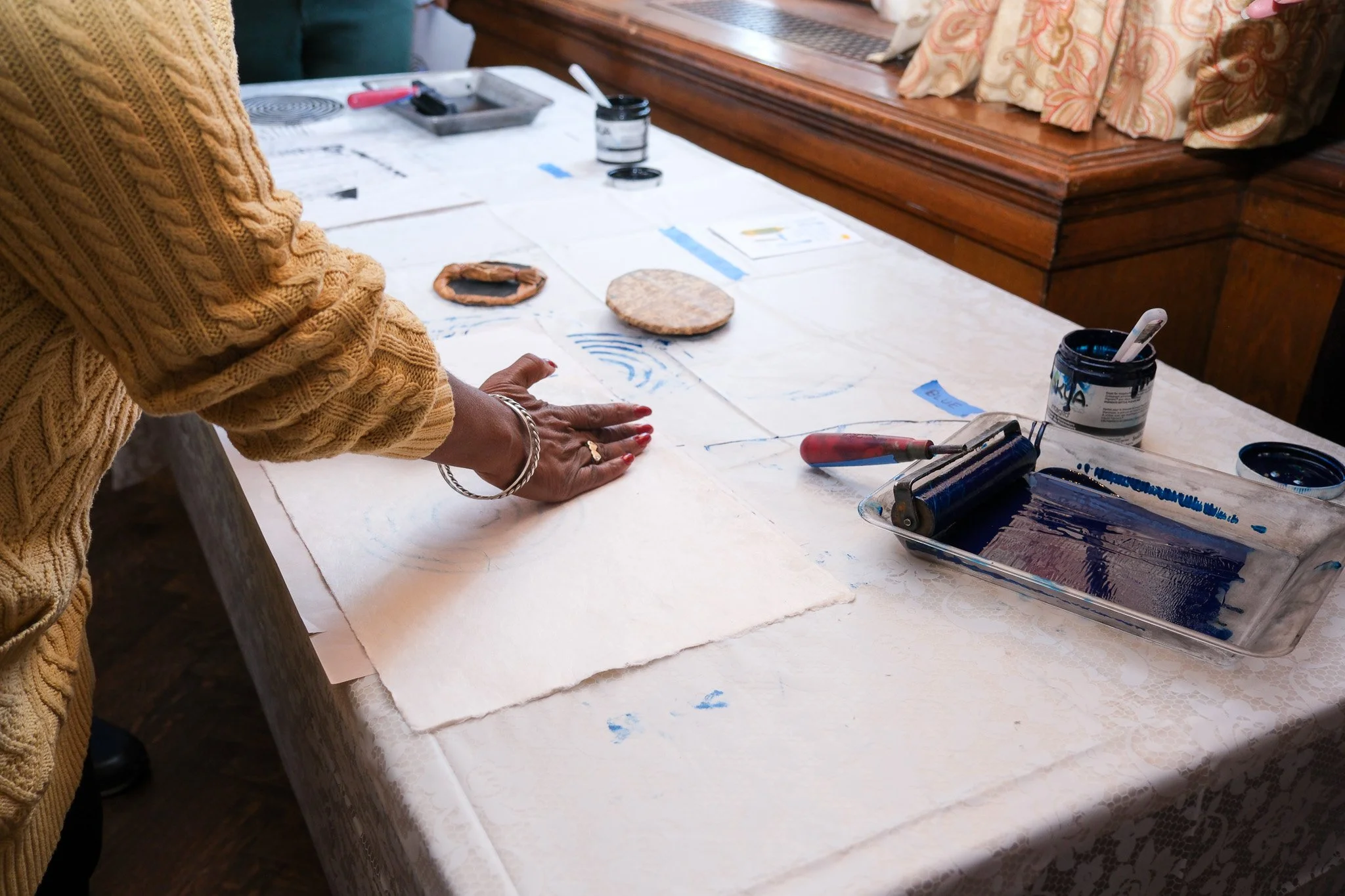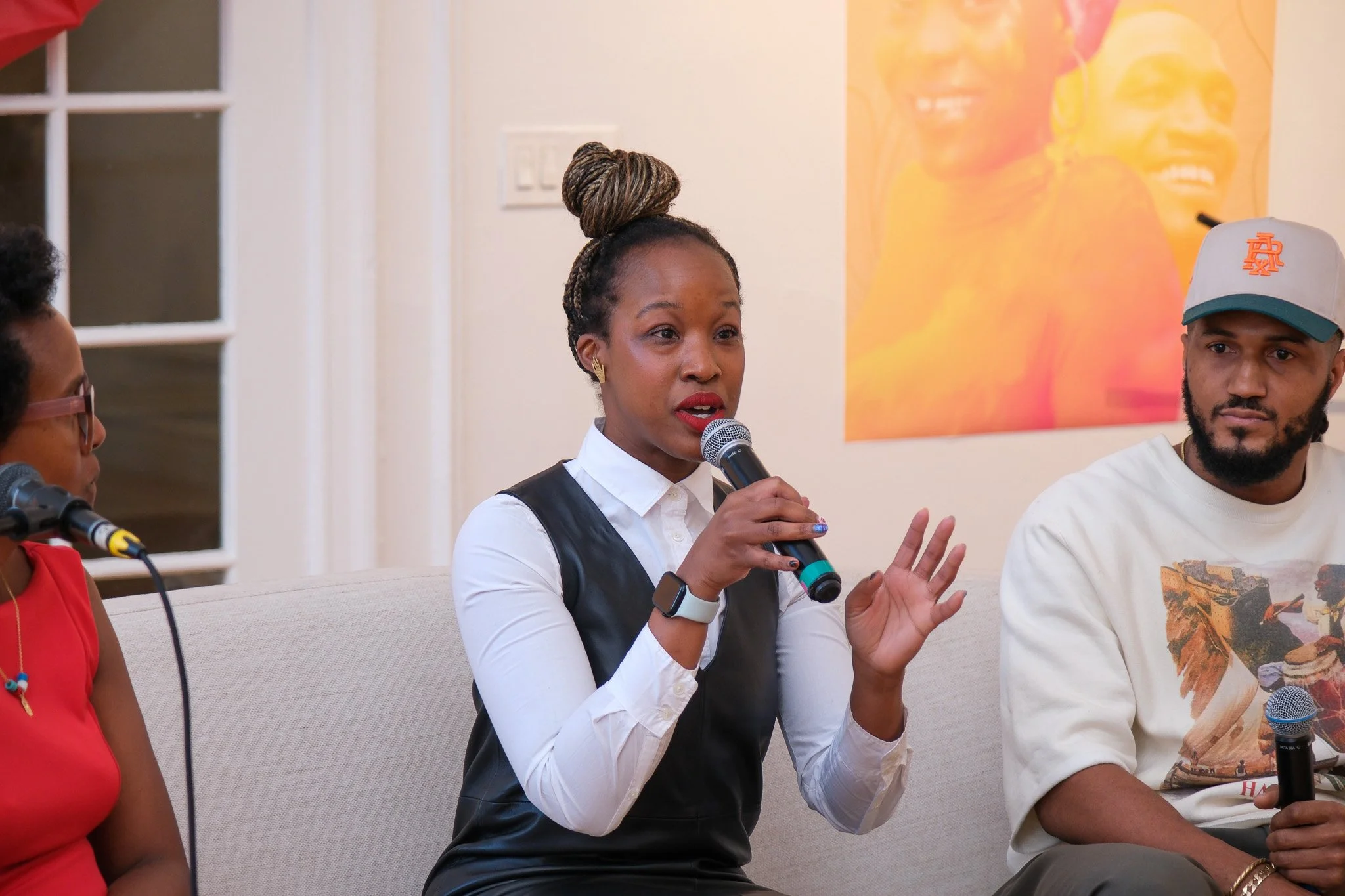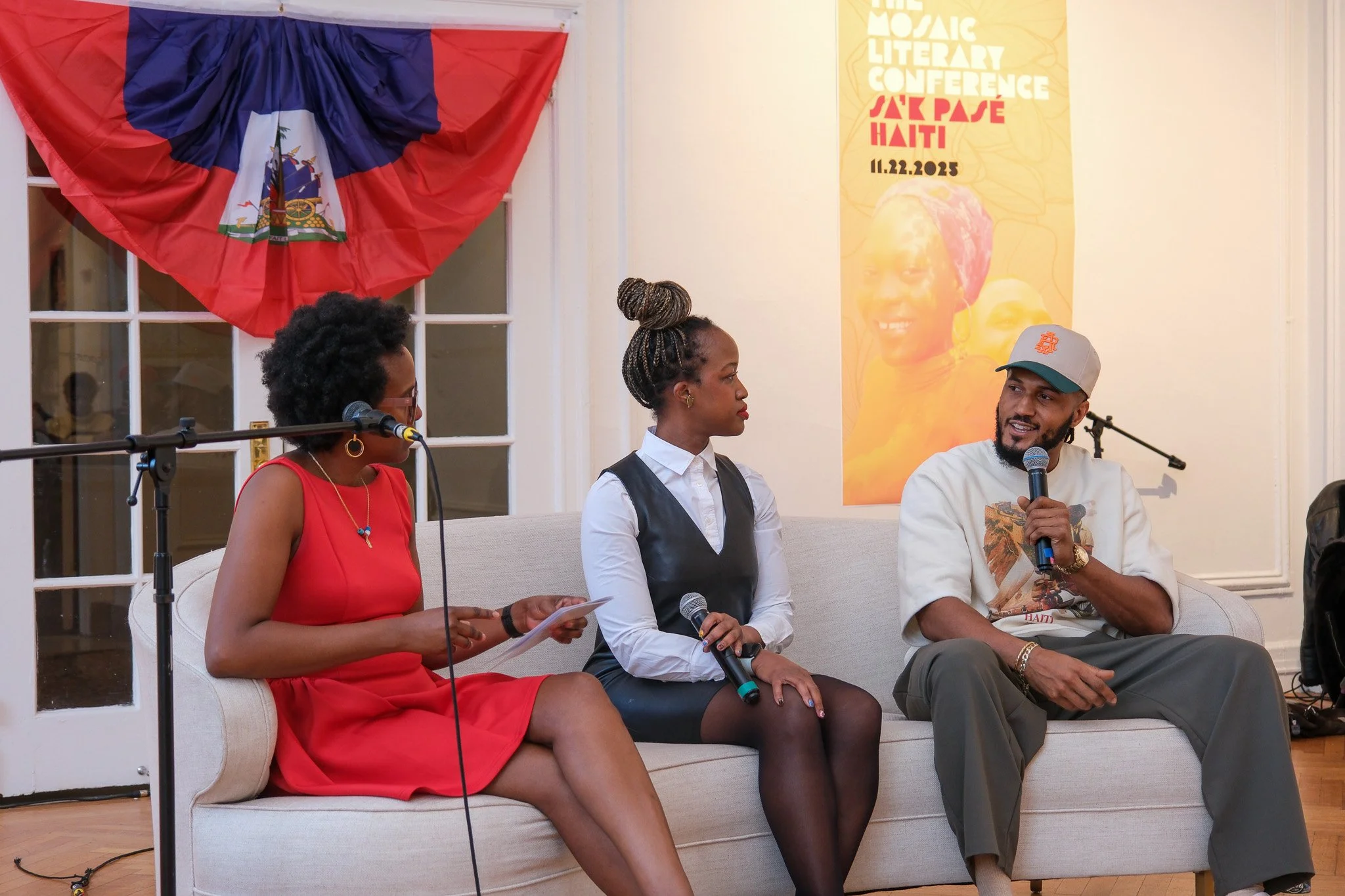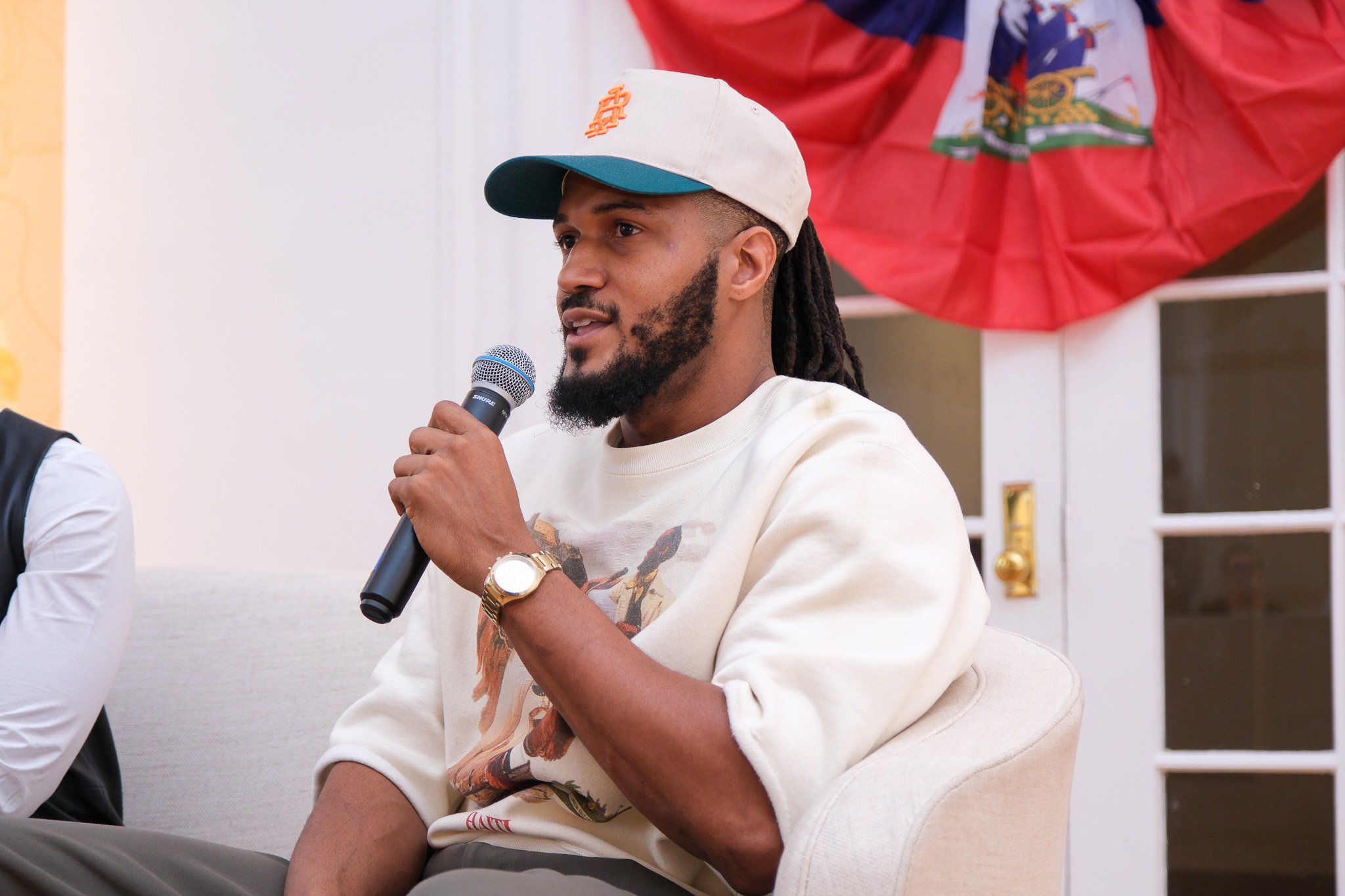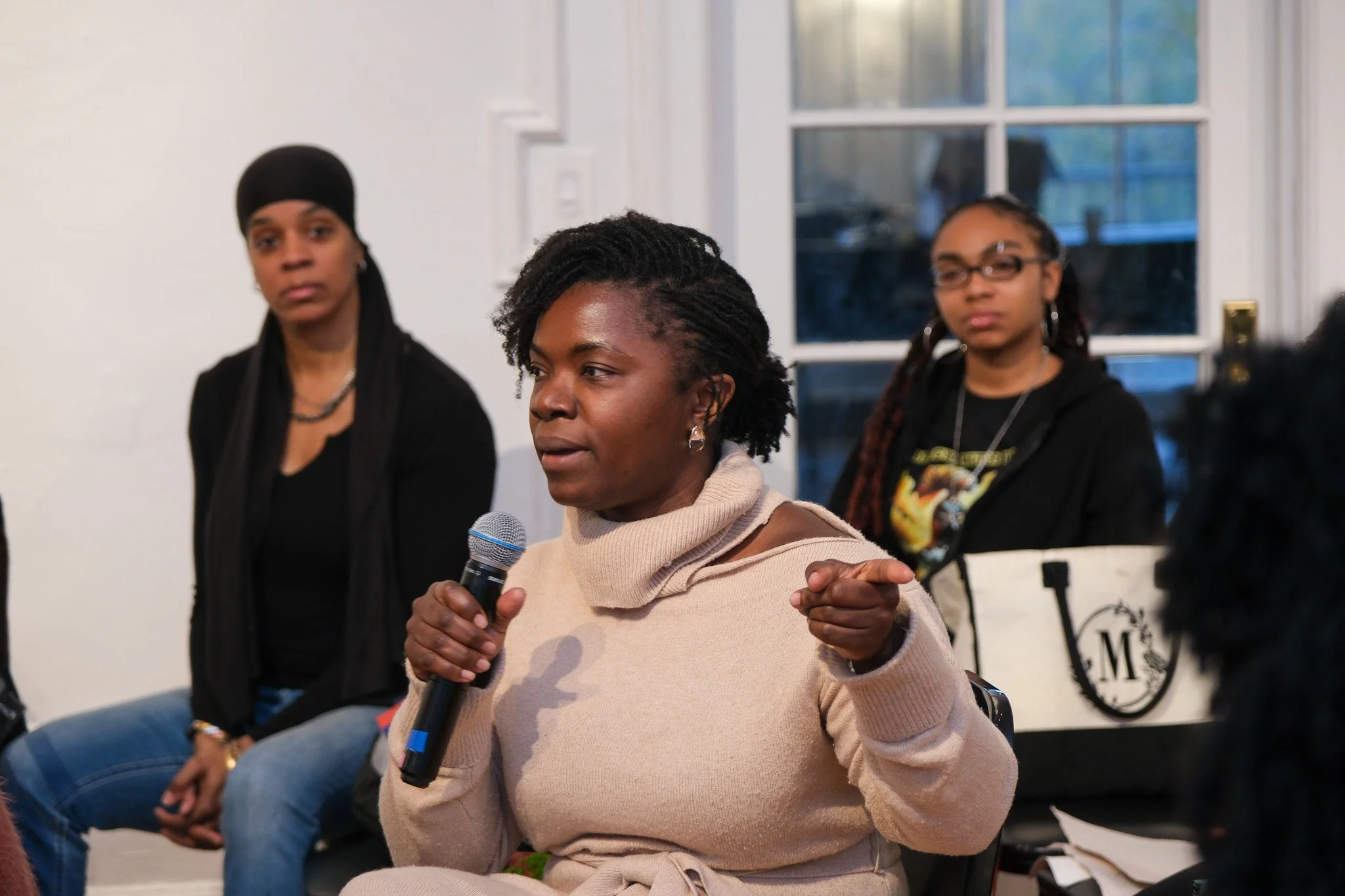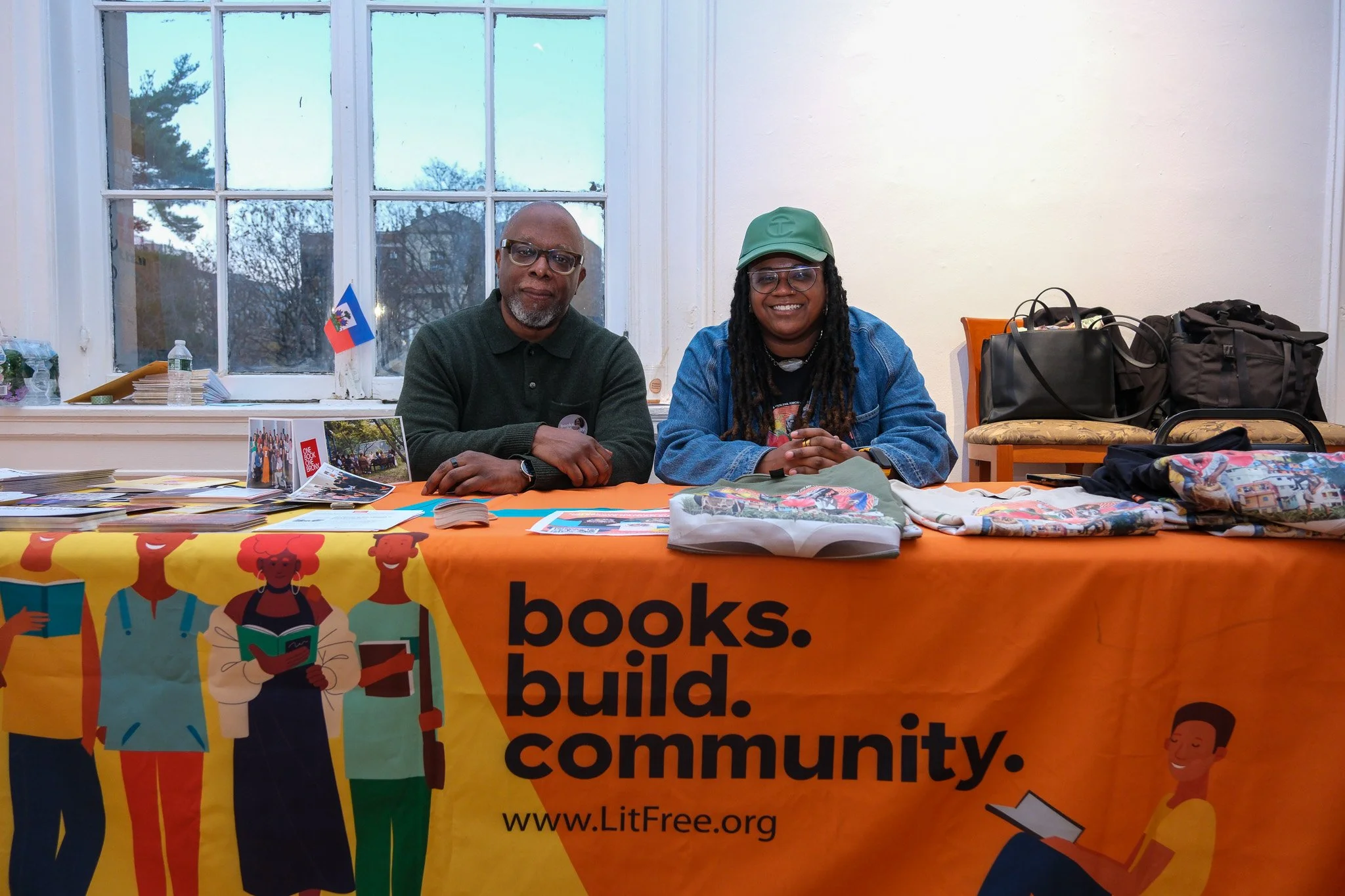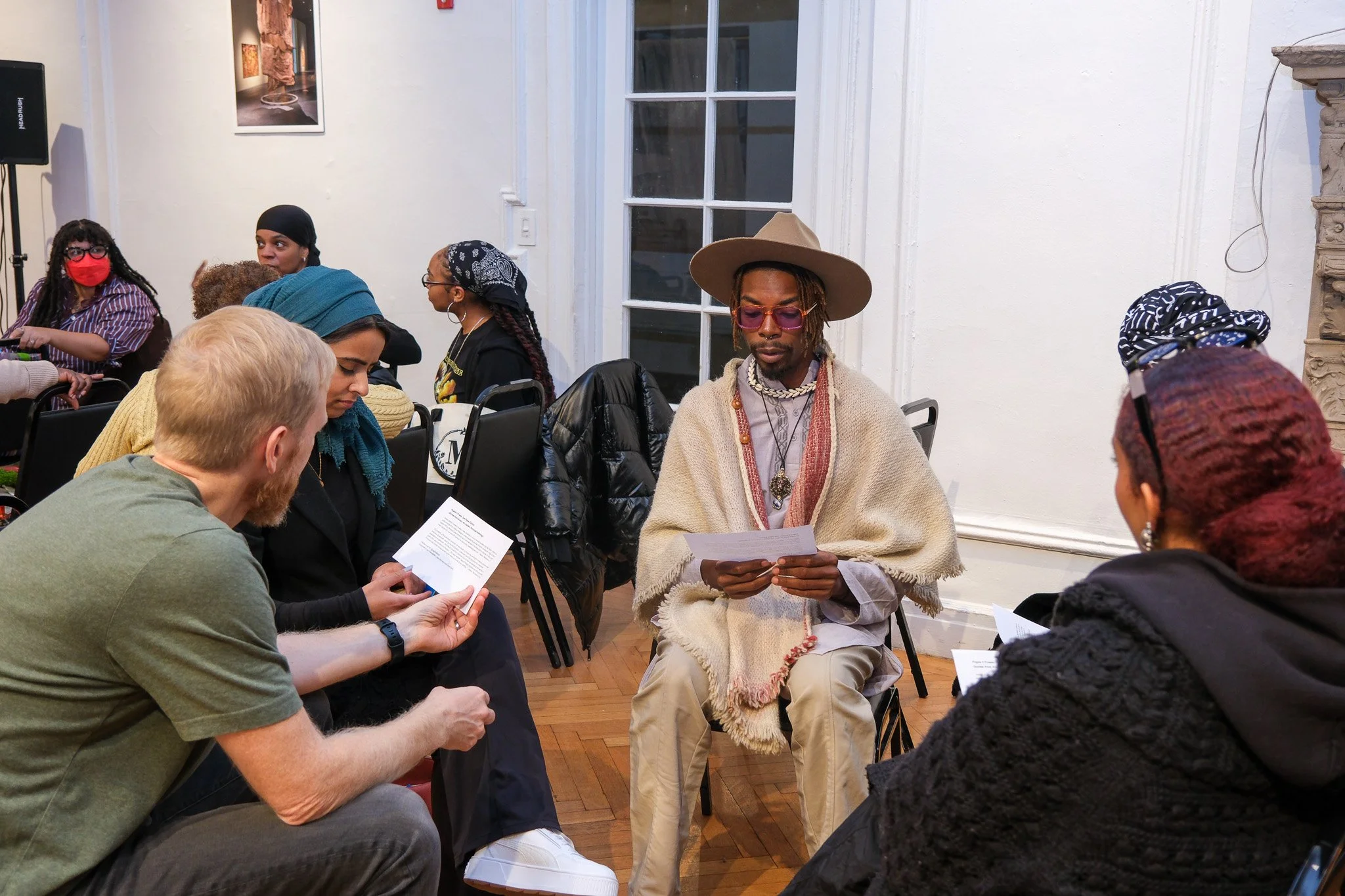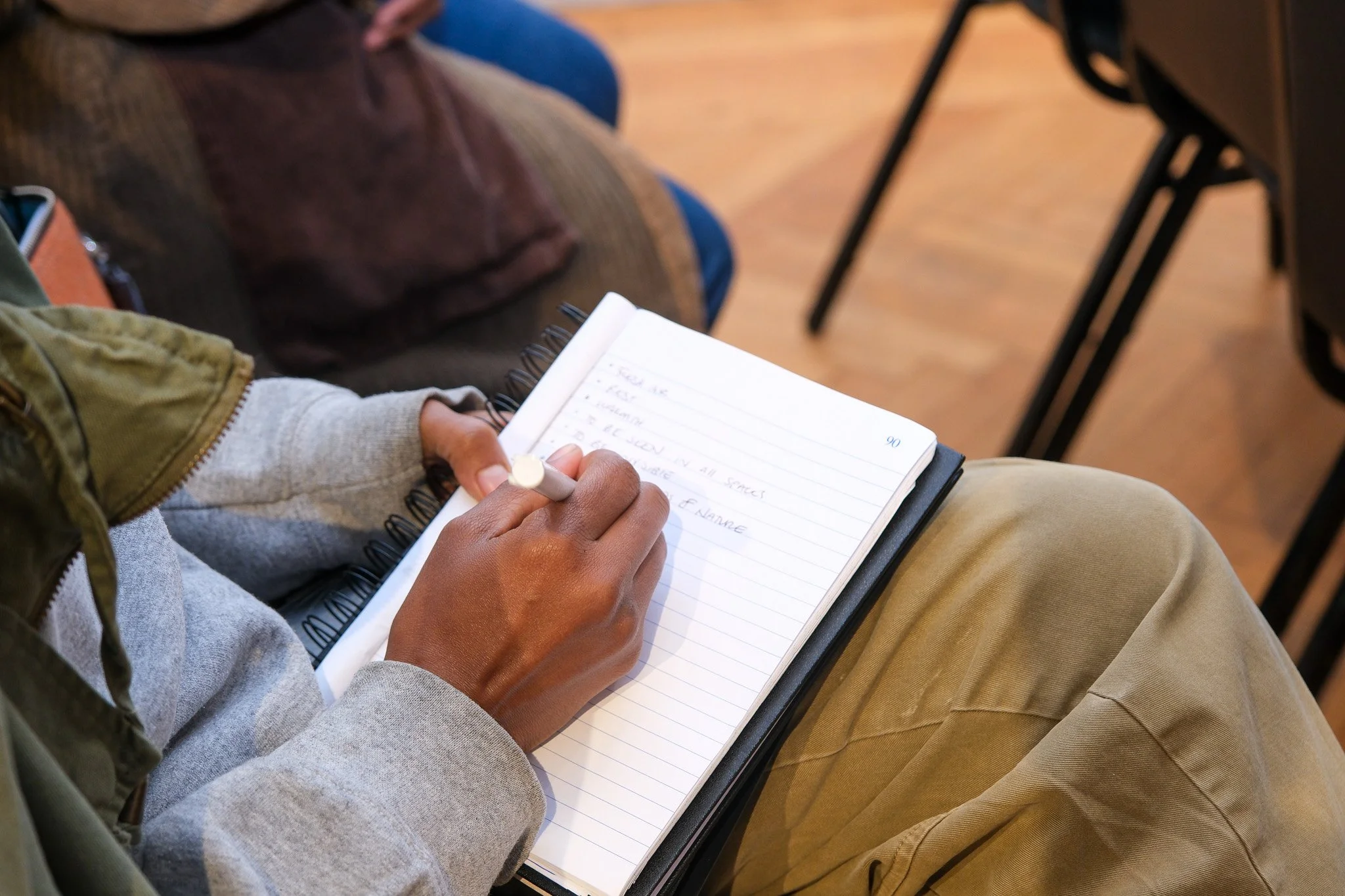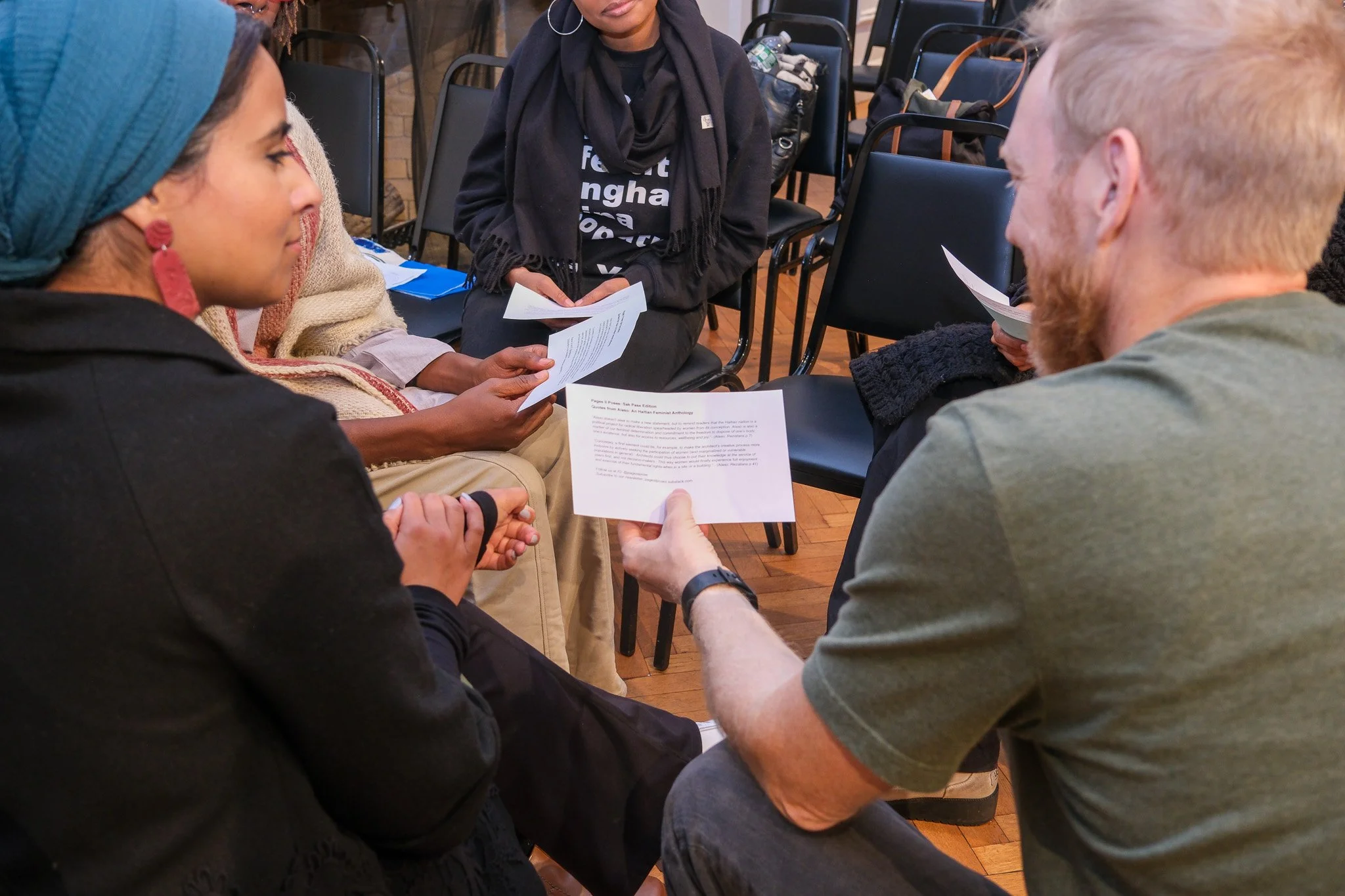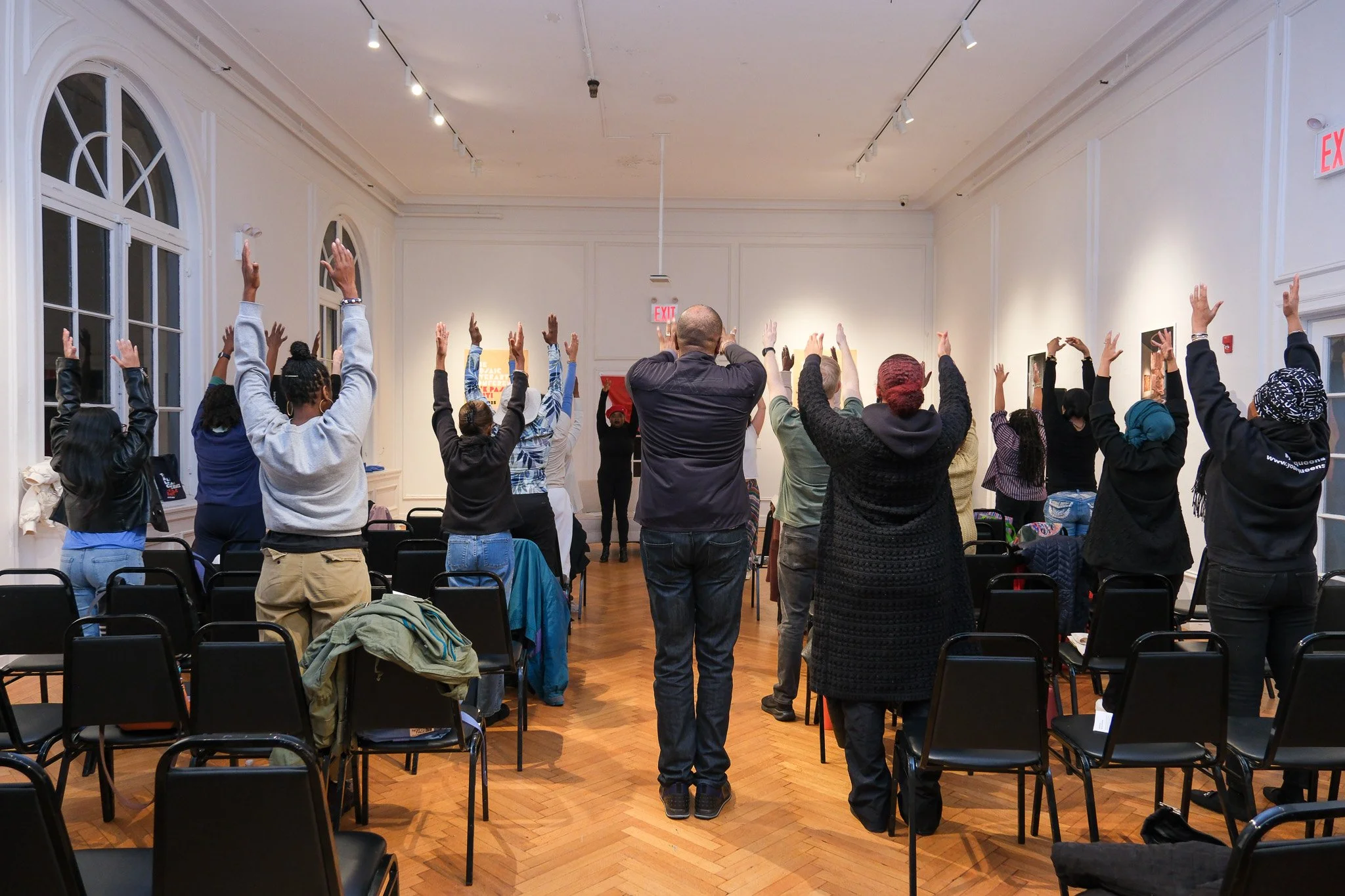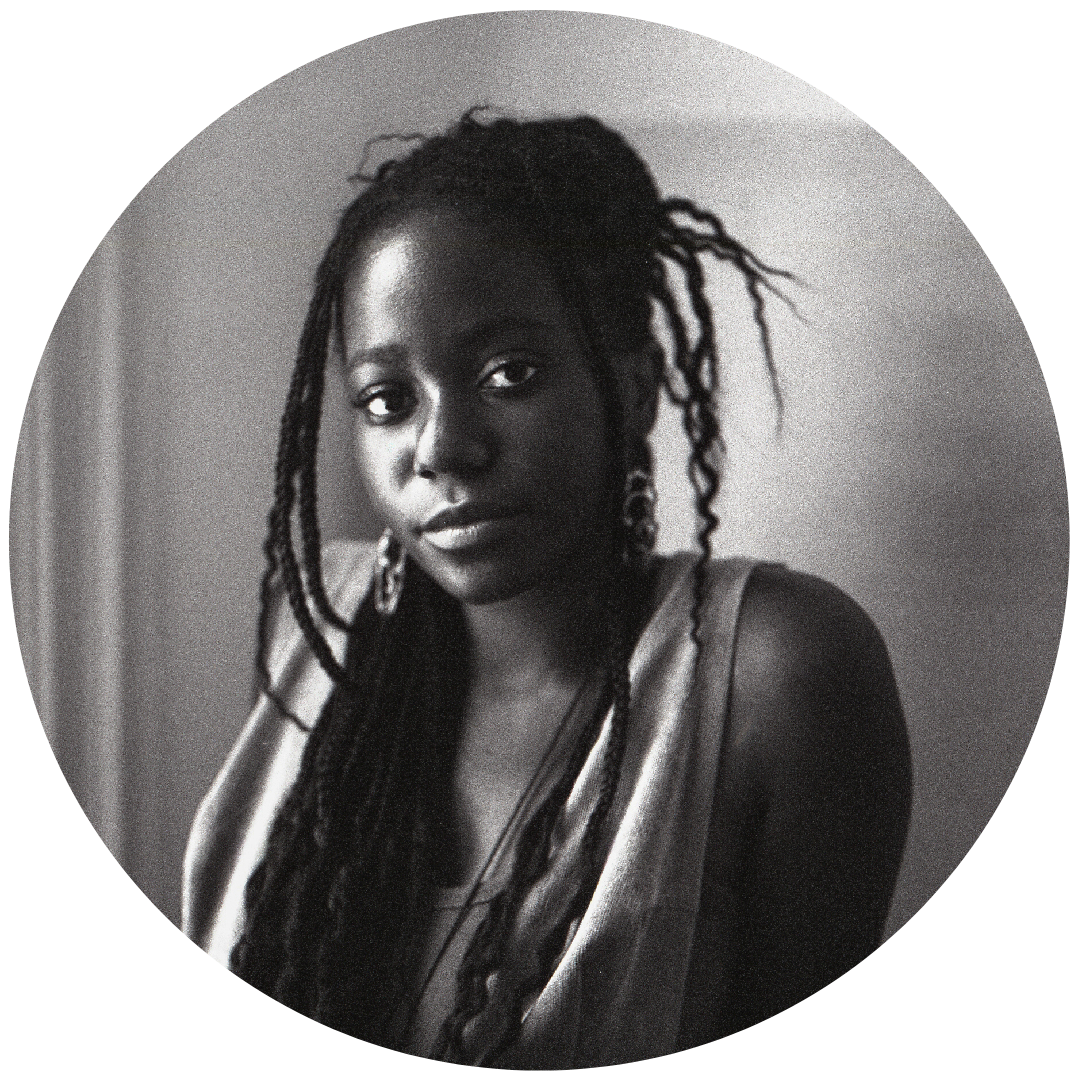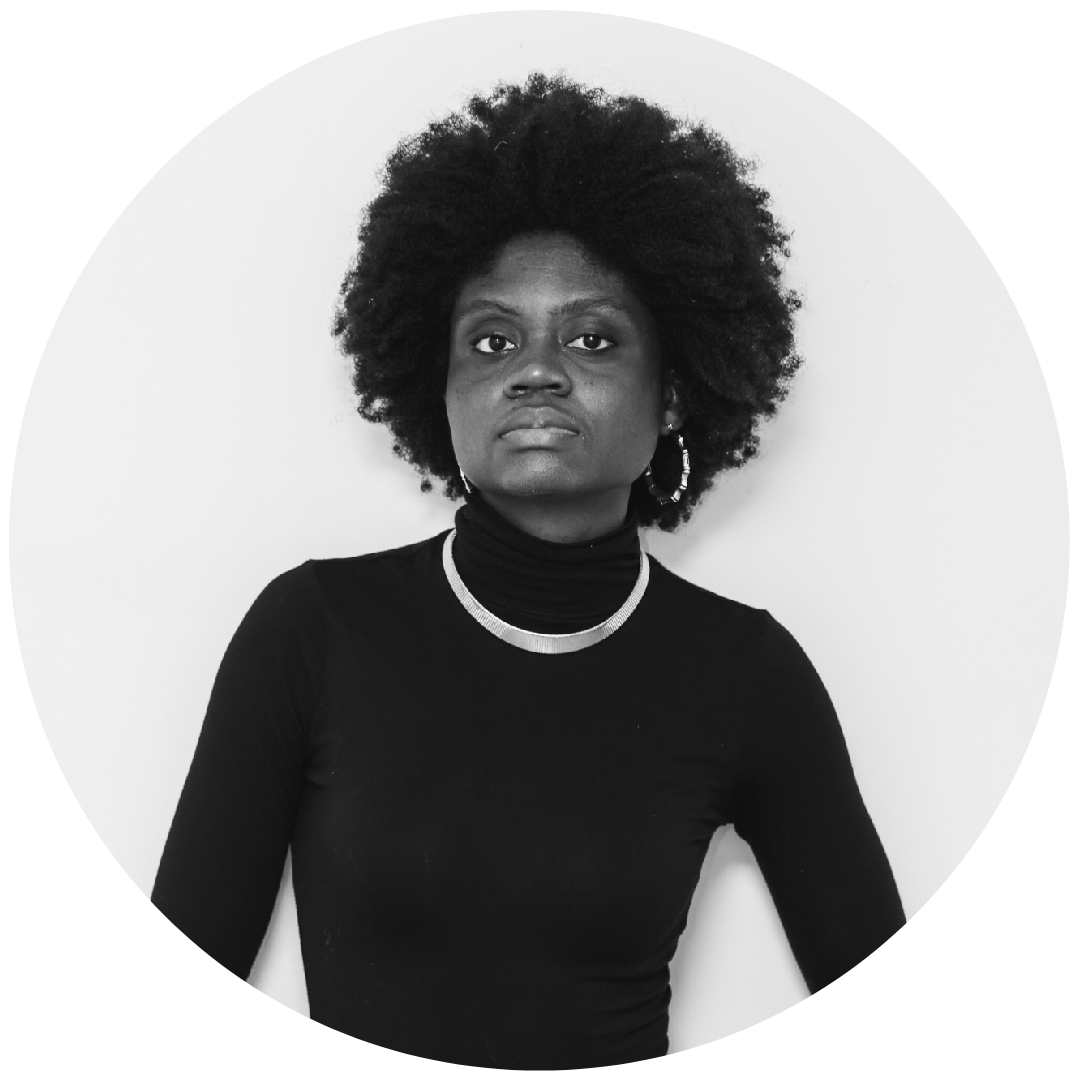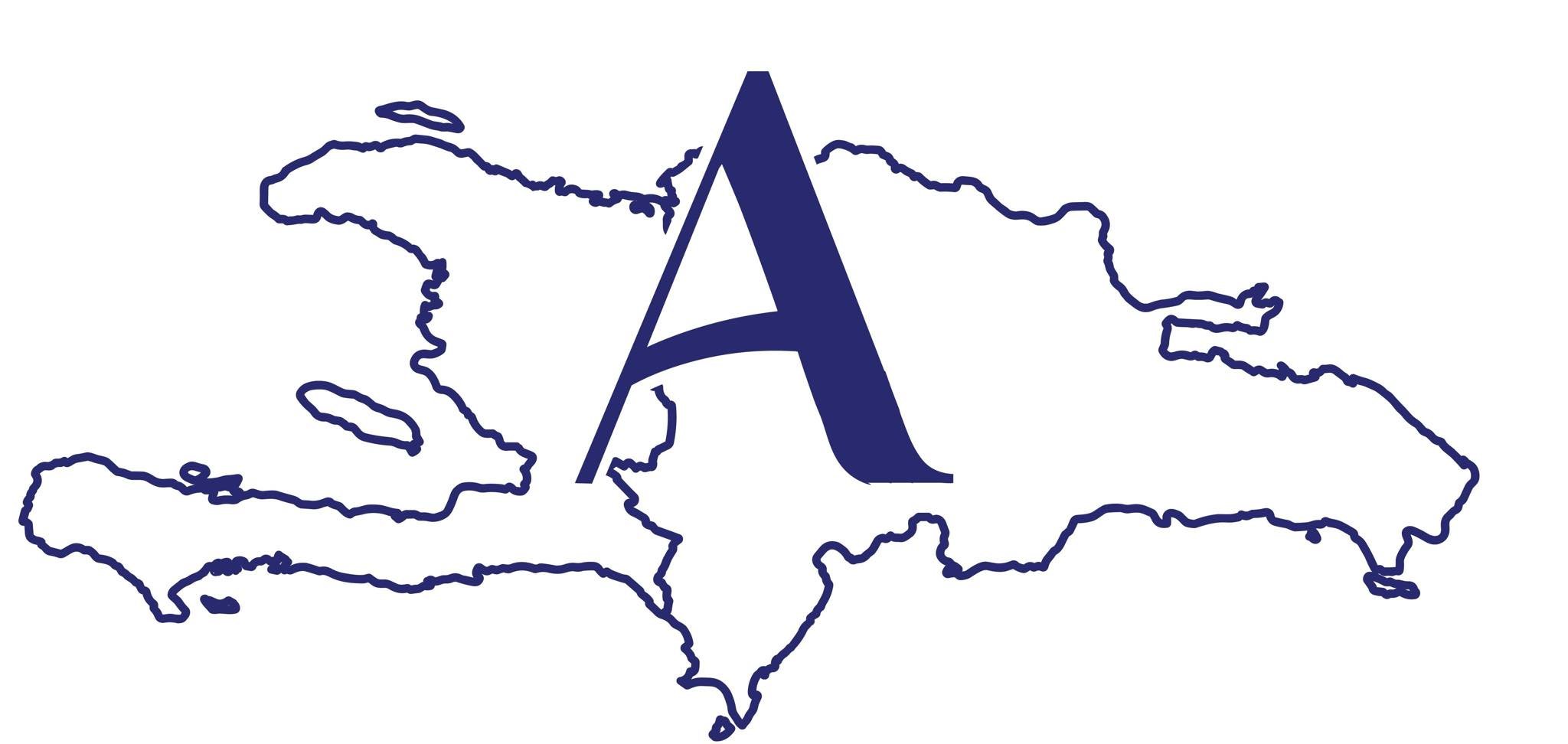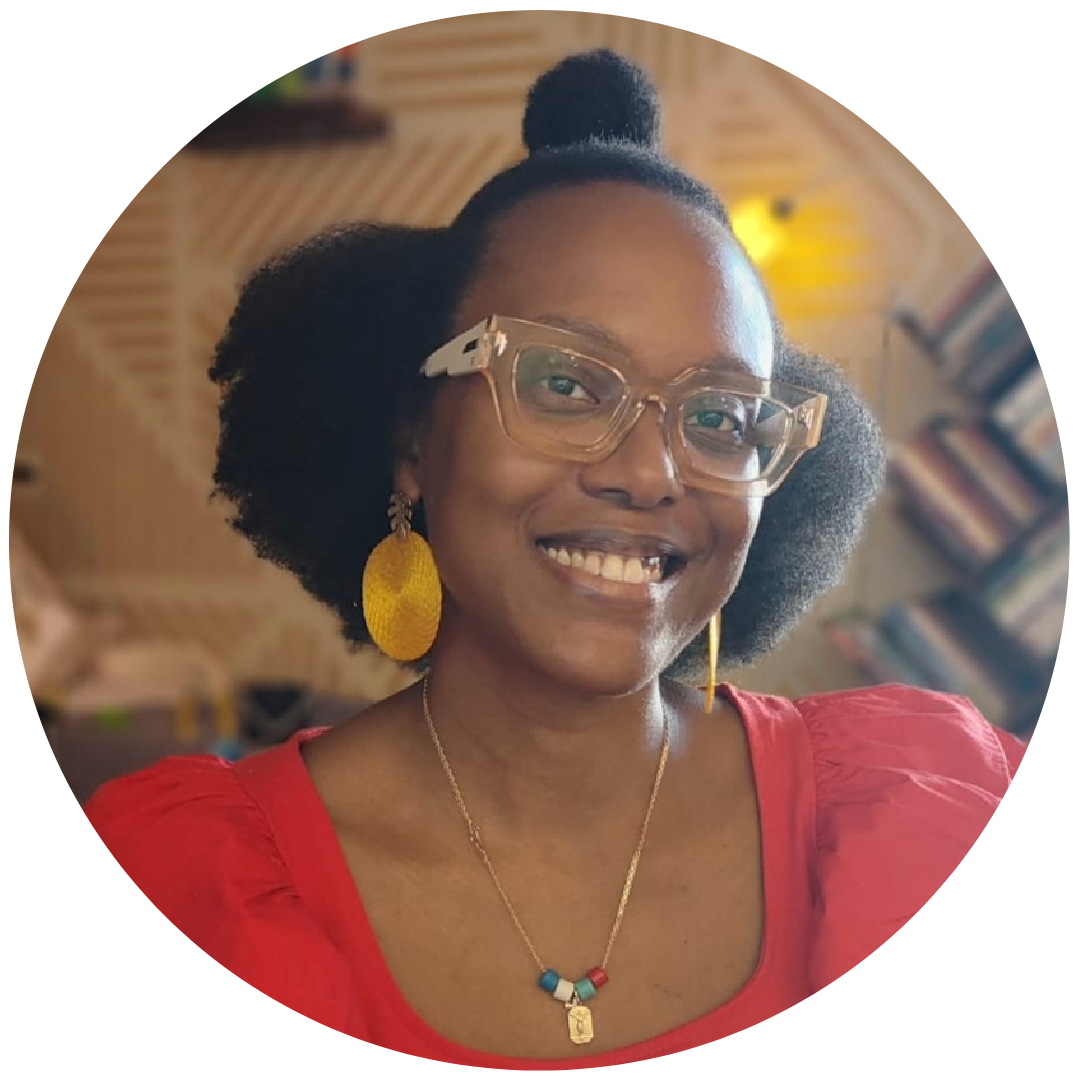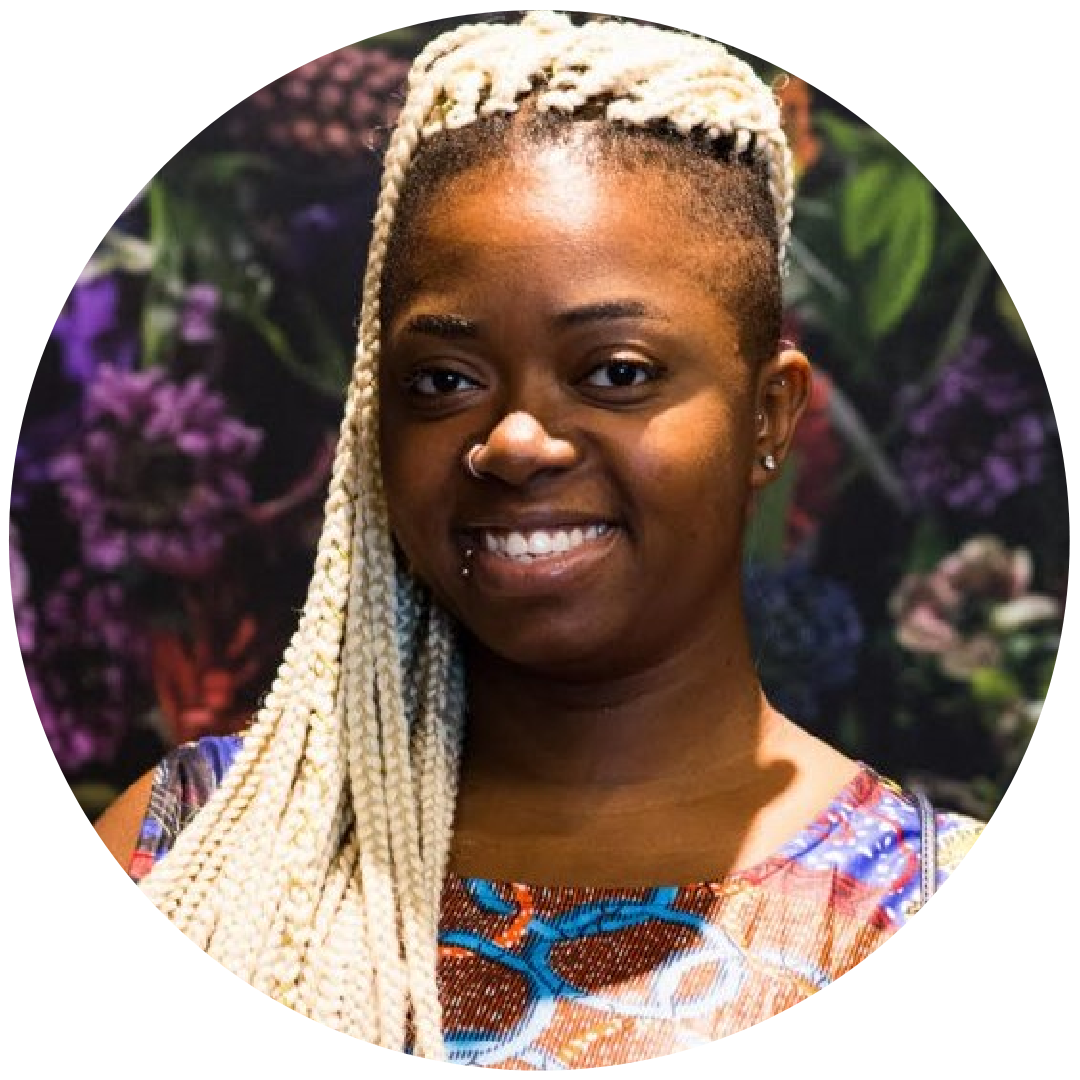MLC2025
Sa’K Pasé, Haiti!
This year, the Mosaic Literary Conference turns its focus to Haiti, a nation whose history embodies resilience, revolution, and the unbreakable power of community. From the world’s first successful slave rebellion to its profound contributions to global literature and culture, Haiti’s legacy continues to inspire and challenge us today.
Building on the momentum of our summer-long Sa’k Pasé, Haiti initiative, the 2025 Mosaic Literary Conference will bring together writers, educators, artists, and community members to explore the rich literary traditions of Haiti and the Haitian diaspora. Through engaging panel discussions, interactive workshops, and thought-provoking presentations, we will delve into the ways literature connects us to history, identity, and collective healing.
MLC2025: schedule
12:00 - 12:10PM: WELCOME
12:10-1:00PM: PANEL
THE SACRED PALETTE: HAITIAN SPIRITUALITY, FOLKLORE, AND ART AS TOOLS FOR OUR STORYTELLING
At the heart of Haitian consciousness lies a sacred triad: the immersive world of spirituality, the resonant wisdom of folklore, and the vibrant language of visual art. These are not mere subjects for storytelling; they are its very tools, its lifeblood, and its most profound grammar. This panel gathers Haitian artists and writers who draw from this wellspring to challenge and go beyond linear narratives, composing works that pulse with the rhythm of Haiti and her diaspora. Discover how our panelists use the Sacred Palette to perform a kind of literary and artistic magic, conjuring stories that are not simply told, but felt, experienced, and remembered in the soul. This is storytelling as ritual—a continuous, spiraling act of creation and reclamation.
Moderator: S. PhaFa Roy
Panelists: Laurena Finéus, Zamí, and Lunise Cerin
1:10 - 2:00PM: WORKSHOP
WHORL AND IMPRESSION: EXPLORING SPIRALS THROUGH PRINTMAKING
The spiral is more than a shape; it is a profound cultural code. In Haitian cosmology, the spiral represents the journey of the soul, the cyclical nature of life and ancestry, and the sacred energy patterns known as vèvè that call the lwa into being. It also echoes the whirl of the kòné—the conch shell used to call communities together—and mirrors the universe itself. It is a map of time where past, present, and future converge, and a symbol of resilience that reminds us that, though we may move in cycles, we are always advancing.
In this hands-on printmaking workshop, we will move beyond the spiral as a simple motif and explore it as a dynamic principle of creation. Participants will be guided through the process of creating their own spiral-inspired prints, using techniques such as monoprint. We will delve into how the spiral can inform not just the image we make, but the very method of making it—embracing repetition, layering, and the accumulation of meaning, much like the Haitian literary philosophy of Spiralism.
No prior experience is necessary. All materials will be provided. Participants will leave with their own unique prints and a deeper understanding of how an ancient symbol can guide a modern creative practice.
Facilitator: Jazmine Arelis Catasús
2:00-2:50PM: LUNCH
Provided by Antilles Cafe of BK
3:00 - 3:50PM: PANEL
THE HAITIAN BLUEPRINT: FOUNDED ON INSPIRATION WHILE BUILDING WITH PURPOSE, RESILIENCE, AND INNOVATION
The story of Haiti is the original blueprint for Black sovereignty and creative defiance. But how does that revolutionary spirit translate into entrepreneurship and innovation? This panel brings together a dynamic group of entrepreneurs of Haitian descent who are channeling their heritage into groundbreaking business ventures. Move beyond the headlines and discover how the world’s first Black republic is inspiring a new wave of enterprise. These founders are not just building companies; they are building legacies, using the core tenets of the Haitian ethos as their guide. Our panelists will share their journeys of transforming cultural inspiration into viable business models. They will discuss how the legacy of Haitian creativity and resilience informs their brand storytelling, product design, and company mission. This conversation will explore what it means to build a business that honors a powerful past while forging a sustainable and innovative future.
Moderator: Wynnie Lamour-Quansah
Panelist: David Jean Philippe and Ruth Jean-Marie
4:00 - 4:50PM: WORKSHOP
WHERE WE BUILD IS WHERE WE HEAL: HAITIAN FEMINISTS ARCHITECTING A BELOVED COMMUNITY
This workshop explores the transformative principle that our spaces of community care are, themselves, the very sites of our collective healing. Guided by the wisdom and praxis of Haitian feminists, specifically from Alaso: A Haitian Anthology’s first volume title Rezistans, we will delve into how they actively "architect" the Beloved Community—not as a distant ideal but as a living, breathing reality built from the ground up.
We will examine this framework, drawing on ancestral intelligence, spiritual resilience, and radical care to design ecosystems of mutual support. This session is an invitation to understand how the intentional creation of community infrastructure becomes a sacred act of restoration for both the builders and the inhabitants. Together, we will learn how we can all participate in this ongoing, life-affirming process of construction and recovery.
Facilitators: Jazy Cintron and tasha dougé
5:00 - 5:10PM: VR INSTALLATION
TRIBUTE TO TOUSSAINT L’OUVERTURE
“It is not a liberty of circumstance, conceded to us alone, that we wish; it is the adoption absolute of the principle that no man, born red, black or white, can be the property of his fellow man.” ― Toussaint L’Ouverture
Toussaint L’Ouverture was born enslaved and lived a life fighting for freedom. His story is one of bondage, freedom, bravery, and abandonment. In August of 1791 he led an uprising of enslaved Africans in St. Domingue [Haiti], a significant event in the fight to end the transatlantic slave trade. The lone example of a slave rebellion that led to the successful overthrow of the plantation system. Toussaint fought to end French rule in St. Domingue and brought about the abolition of slavery on the island by 1801. His Journey from an enslaved man to a leader of the only successful slave revolt in modern history highlights Toussaint as one of the most important figures in history.
Explore Toussaint in the Kinfolk App. Download the Kinfolk App on your mobile device to bring a part of his world into your home.
5:10 - 5:30PM: COMMUNITY CONVERSATION
Join us for a community conversation reflecting on Sak Pase, Haiti, the Literary Freedom Project’s summer-long program exploring Haitian history, resilience, and cultural imagination. We’ll discuss what resonated, what we learned, and how these themes can guide future work. Your voice will help shape ongoing community dialogue and cultural engagement.
5:30 - 5:50PM
A MOMENT OF REFLECTION
A message from the Sa’K Pasé, Haiti curator and host tasha dougé
5:50 - 6:00PM Closing Thank Yous and Music
Official Bookseller
carousel photos by Suede
